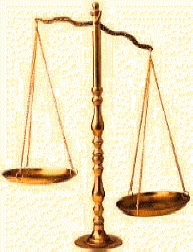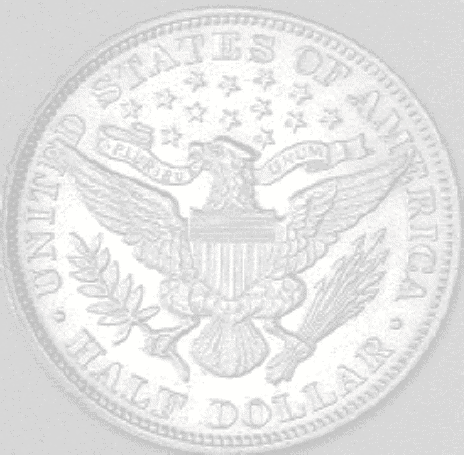
|
|
||
|
|
|
|
|
|
||

-32-
FOR BETTER OR WORSE:
Graft
The beginning of the 20th
century witnessed a "wholesale multiplication of securities" (Hicks,
414). For example, United States Steel "sold" securities far in excess
of the wealth of its corporations. They were often offered at "prices"
exceeding the earning power of the corporations they represented (Hicks,
414).
Graft abounded. In April 1907, Judge Kenesaw Mountain Landis found
Standard Oil of New Jersey guilty of 1462 counts of receiving illegal
rebates from the Chicago and Alton Railroad, and fined the company
29,240,000 "dollars." A higher court reversed the sentence (Hicks, 414).
The same year, the government recovered over
4,000,000 "dollars" after the conviction of the American Sugar Refining
Company for tampering with the scales on which it weighed the sugar it
imported (Hicks, 414). Is it any less immoral for Congress to tamper
with the nation's standard of weights and measures, or to issue paper
"money?"
The Panic Of 1907
Such rampant corruption had a
degenerating influence in the confidence Americans had in their economy.
Gold and silver were hoarded. To make matters worse, nearly every
financial institution in the country was involved with the bankers on
Wall Street. This amounted to a monetary union, and one that had the
power to grant credit or to refuse it at will (Hicks, 415).
In October, the winds of unrest began to blow
with greater vehemence, and on October 22, 1907, panic returned as a
"run" was made on the Knickerbocker Trust Company, New York's third
largest financial institution. By noon the following day, its cash
reserves were exhausted. A dozen more New York banks were forced to
close. Several railroads were forced into bankruptcy. Factories closed,
and people were thrown out of work (Hicks, 415).
J. P. Morgan
Secretary of Treasury George B. Cortelyou withdrew 25,000,000 "dollars" from the United States Treasury and deposited the amount in New York banks. Certificates of deposit known as "Clearing-house certificates" * and payroll checks circulated freely as “money" (Hicks, 415). At the advice of Mr. J. P. Morgan, President of United States Steel Corporation, President Theodore Roosevelt promised the Corporation immunity from prosecution in order to save the Tennessee Coal and Iron Company from collapse (Hicks, 415).
* "Subsidiary” coinage is coinage worth a fraction of its "face" value. (White, p. 35)
The Aldrich-Vreeland Act
On May 30, 1908, Congress passed the Aldrich-Vreeland Act. In effect, it amended the National Bank Act by providing for the issuance of "emergency currency." It entailed additional circulation of national bank notes that were secured other than by the deposit of United States bonds, and according to the need as judged by the Secretary of the Treasury (“Coins and Currency”, 20). It was strangely reminiscent of the Republican-sponsored "Inflation Bill" of 1874. The most ominous part of the Aldrich-Vreeland Act was the creation of the National Monetary Commission "to investigate the currency systems of the world and to lay plans for a thorough-going reform in the American system” (Hicks, 415).
The
Commission made its report in 1912 and from its conclusions the Federal
Reserve Act of 1913 was adopted (Hicks, 415). America was on its way to
losing its identity in the sea of internationalism. The Federal Reserve
Act of 1913 amounted to the surrender of this nation's birthright and
the utter rejection of the Law of God in exchange for a man-made system.
